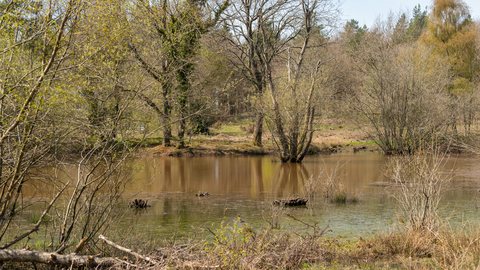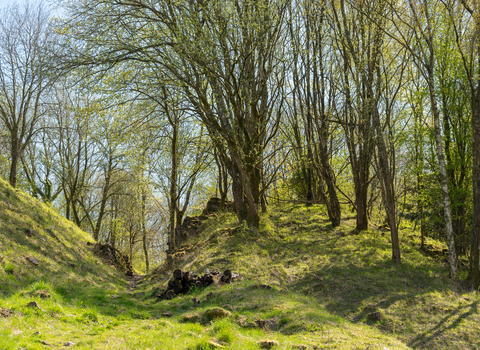
Wigpool (c) Nathan Millar
Wigpool
Location
Know before you go
Dogs
When to visit
Opening times
Open access throughout the yearBest time to visit
May to SeptemberAbout the reserve
A visit to Wigpool is a journey into another world; a beautiful and peaceful stretch of water enclosed by trees. The nature reserve is a valuable habitat for reptiles and birds, which thrive among acidic marshland plants, with rushes, bilberry, grey willow and alder occupying the drier conditions at the water’s edge.
A smaller area of water known as Pit House Pond was formed during mining operations during the nineteenth century and is now an excellent habitat for wildlife. This can be found to the south-west of the larger pool.
Other species found here are marsh penny wort, marsh speedwell, common marsh-bedstraw, floating sweet grass, sedges, self-seeded birch, as well as numerous dragonfly species that have been recorded.
History
Records for Wigpool Common date back to the late thirteenth century and the nature reserve was an open area for many years before being planted with conifers up to its edge during the 1950s. Now jointly managed by GWT and the Forestry Commission, the periodic harvesting of these trees has enabled open habitats to be gradually restored, with the grazing of rare breeds contributing to a diverse mix of plants.
Almost the entire area was once overcome by birch trees, which have been cleared by GWT staff and volunteers over a decade of winters. Bracken is managed and tall gorses flailed to achieve a mosaic of dwarf shrubs, the optimal conditions for heathland wildlife. GWT’s involvement dates back to the late 1960s and the charity once looked after two separate reserves at Wigpool, but since 2009 these have been brought together. The rights of Commoners in the Forest of Dean mean that this nature reserve cannot be fenced.
Conservation grazing in the Forest of Dean
We’ve partnered with Foresters’ Forest to carry out conservation grazing in the Forest of Dean. The project aims to protect and enhance wildlife in the Forest by creating areas of open habitat, especially heathland.
Join Ben Robinson (Planning & Environment Manager, Forestry England) and Kevin Caster (Land Manager West, GWT) as they explore the benefits of conservation grazing and the positive impacts seen over the course of this project.



